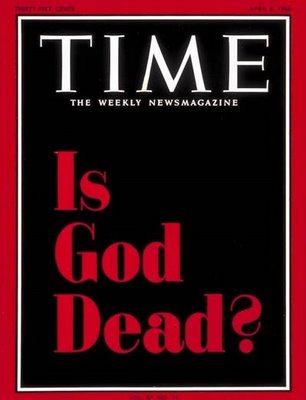for Augustine and the early church, and for Anselm and the medieval church, the relationship between faith and knowledge could be summed up in the saying, Credo ut intelligam: I believe in order to know,
but this relationship was then inverted by Descartes, whose principle then became, "I doubt in order to know":
For Descartes, the fact that he was doubting, that his mind was active in doubting, was for him indubitable evidence of his existence. Cogito ergo sum: I think therefore I am. But take note of his way to know. It used to be: I believe in order to know. For Descartes, it became: I doubt in order to know.
Descartes did not take this to its logical conclusion (namely, "the elimination of the possibility of certain knowledge about anything"), but Nietzsche did, and "the relativism and pluralism of the postmodern mind reflect a triumph of the ways of Nietzsche". A particularly good point made by Dr Okamoto is:
For Descartes, doubt was the starting point to certain knowledge, but doubting has turned out to be his legacy, and it is enormous. As Lesslie Newbigin observed: "At the most obvious level, it has created a prejudice in favor of doubt over faith. The phrases 'blind faith' and 'honest doubt' have become the most common of currency. Both faith and doubt can be honest or blind, but one does not hear of 'blind doubt' or of 'honest faith.' "
"Blind doubt": brilliant. That's
exactly what we see all around us. People who don't actually have the first idea what Christianity is about, but (like a three-year old refusing his dinner), just
know they don't like it. And yet who think they are exercising "honest doubt" in place of the poor, deluded "blind faith" of those ignorant, lumpen, bigoted Christians.
from confessing evangelical
 Give me cash Lord... take away financial uncertainty... if you give me lots i'll give most back to you i promise... you can trust me... i would be doing something for you but i need money first... don't i have enough faith for you to bless me?... if i pray the prayer of Jabez a bit more God will have to give me some... i promise to do great things that you will be really impressed with Lord but i need cash... now!
Give me cash Lord... take away financial uncertainty... if you give me lots i'll give most back to you i promise... you can trust me... i would be doing something for you but i need money first... don't i have enough faith for you to bless me?... if i pray the prayer of Jabez a bit more God will have to give me some... i promise to do great things that you will be really impressed with Lord but i need cash... now!


